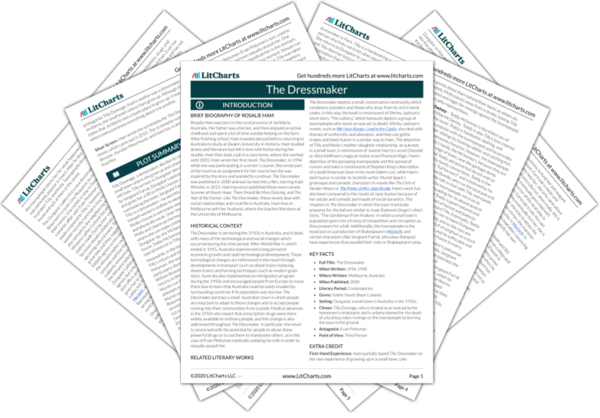Europe is associated with modernity, progress, and diversity in the novel, whereas Dungatar is associated with old-fashioned and conservative ways of life. Tilly creates herbal remedies with the plants she receives from abroad and this suggests that, while herbal medicine is seen as suspect in Dungatar, it is commonly practiced elsewhere in more progressive, open-minded societies. Tilly is reluctant to socialize in Dungatar because she has always been treated like an outcast there. As a result, she expects this same treatment again. This demonstrates how people’s past experiences can influence their future behavior.


